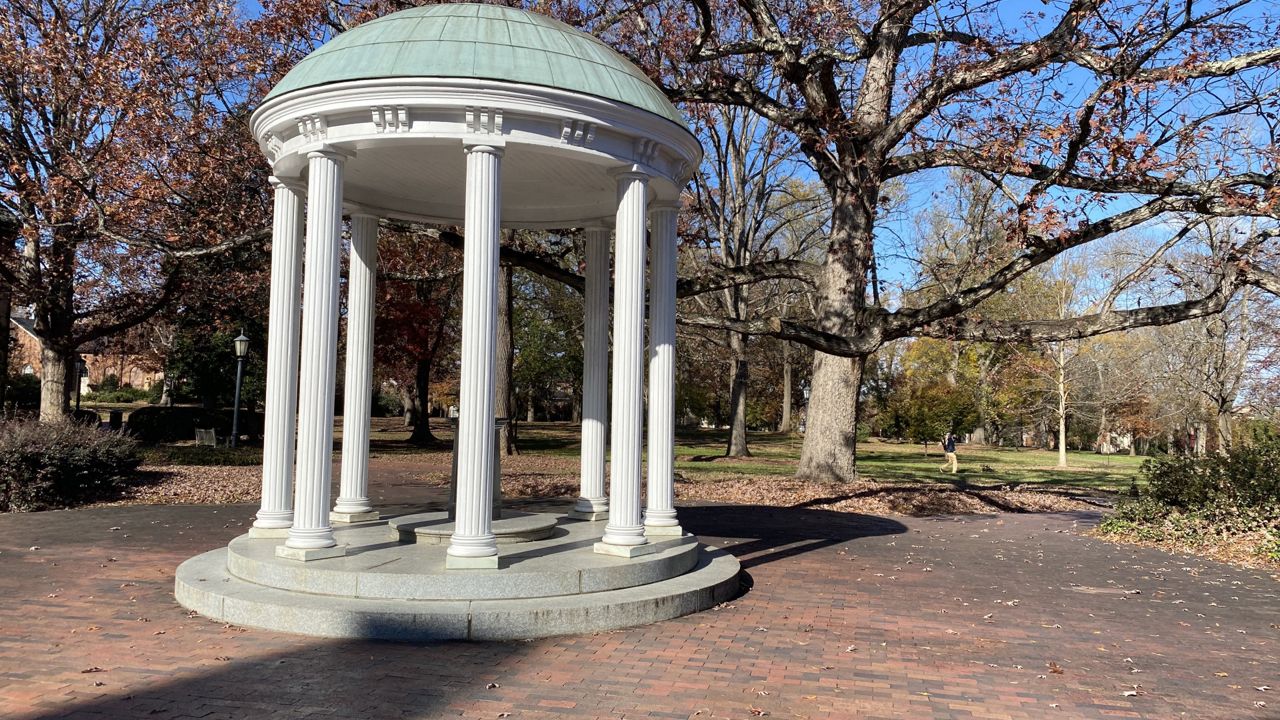Nearly two dozen people face charges after federal agents and local police say they broke up a drug ring that involved fraternity members at UNC-Chapel Hill.
The Drug Enforcement Administration had been investigating drug sales around UNC's fraternities since November 2018, they said.
The investigation also includes students at Duke and Appalatian State, where students allegedly "funneled over a thousand pounds of marijuana, several hundred kilograms of cocaine, and significant quantities of other drugs into these college campuses."
"It became clear early in the investigation that illegal drug distribution occurred at or near some UNC fraternal organization properties. Court filings to date specifically allege illegal drug activity involving the UNC chapters of Phi Gamma Delta, Kappa Sigma, and Beta Theta Pi occurring between 2017 and the spring of 2020," according to the U.S. Attorney's Office in Greensboro.
The students are accused of receiving weekly shipments of up to 200 pounds of marijuana and two kilograms of cocaine for sale on campuses.
“No one is above the law, including college students and fraternity members at elite universities. This serious drug trafficking is destructive and reckless, and many lives have been ruined,” said Matthew Martin, U.S. Attorney for the Middle Disrict of North Carolina.
“This investigation reveals that the fraternity culture at these universities is dangerous. University administrators and national chapters cannot turn a blind eye to the impact on these students and the environment on their respective college campuses. The drug culture feeds many other problems on campus and in our society. University administrators must take a stand and put a stop to it.”
The ring stretched across the country, the U.S. Attorney's Office said. The drugs came from California, according to the office.
One man, Francisco Javier Ochoa, 27, of Turlock, California, pleaded guilty in November and was sentenced to more than six years in prison.
Six other people have also pleaded guilty for their part in the alleged drug ring. They are all set to be sentenced next year.
“College communities should be a safe haven for young adults to obtain a higher education, not a place where illegal drugs are easily accessible,” said DEA Special Agent in Charge Robert Murphy. “These fraternity members’ drug trafficking crimes contributed to a toxic and dangerous environment on these college campuses."
Federal investigators descibe several cooperating defendants who helped lead to these new arrests. One of these defendants "described regularly supplying cocaine to “Chase” (later identified as defendant Charles Poindexter), who sold only to fraternity members. CD2 said he felt safe doing so because most transactions took place at the Phi Gamma Delta fraternity house behind closed doors," according to a news release.
Another UNC fraternity member, David Bayha, 21, allegedly sold drugs from the Kappa Sigma house, according to federal investigators. They say he went so far as to post his current rates for drugs on an online fraternity messaging thread.
One of the cooperating defendants said he or she had other people working for them, including Jason Shuang Xu, 23, and Jason Blake Nitsos, 24, at UNC and Amber Janna Johnson, a student at Duke, officials say.



